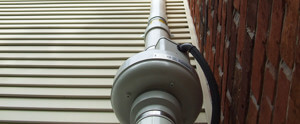January is National Radon Action Month
By: Cherie Summa, Professional Engineer
St. Louis Radon Test and Mitigation
January is National Radon Action Month
January is National Radon Action Month. During January, the U.S. Surgeon General and the Environmental Protection Agency (EPA) urges all Americans to protect their health by testing their homes for radon. Radon is a natural radioactive gas that you can’t see, smell, or taste but could be present at a dangerous level in your home. As the second leading cause of lung cancer deaths in the U.S., and the first leading cause among non-smokers, radon claims more than 20,000 lives annually. Smokers exposed to radon have a much higher risk for developing lung cancer. Exposure to radon is a preventable health risk and testing radon levels in your home can help prevent unnecessary exposure. If a high radon level is detected in your home, it can be fixed through mitigation. For more information about what you can do to protect your health and take action against radon during National Radon Action Month visit www.stlradon.com.
Seven Things You Can Do During National Radon Action Month
1. Test your home - EPA and the U.S. Surgeon General recommend that all homes in the U.S. be tested for radon. Testing can take as little as 48 hours and is inexpensive for something that can be lifesaving.
2. Fix - EPA recommends taking action to fix radon levels at or above 4 pCi/L and contacting a certified radon-reduction contractor.
3. Save a Life - By addressing elevated levels, you can help prevent lung cancer while creating a healthier home and community.
4. Spread the word – A small amount of radon exposure is unavoidable and no cause for concern. However, long term exposure to elevated radon levels indoors increases your family’s risk of lung cancer. Radon can be especially harmful to more vulnerable populations like pregnant women and young children. Research also suggests that, because young children are still growing and take more breaths than adults, they may inhale significantly more radon than adults. Keep in mind, exposure to elevated levels of radon will not cause any immediate health problems or apparent symptoms; thus, being vigilant and taking steps to proactively protect your family is key.
5. Spend time during National Radon Action Month encouraging others to learn about radon and test their homes.
• Tell your family and friends about the health risk of radon. Encourage them to test their homes.
• Tell your clients to test their homes during the inspection period of their contract. Make sure they are using a certified radon measurement and mitigation company to perform the work.
6. Contact your child’s school superintendent or daycare to find out if it has been tested for radon.
7. Have a representative from St. Louis Radon speak at one of your upcoming office meetings to learn more.




